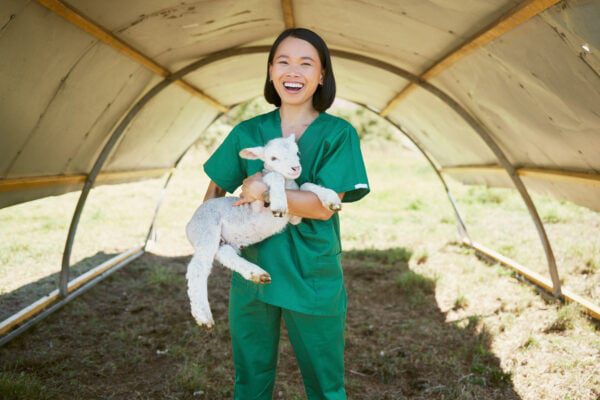Moving to Texas can be an exciting and transformative experience, especially for recent veterinary school graduates. With its diverse landscapes, rich culture, and expanding job market, Texas offers a wide range of opportunities for new veterinarians. This guide aims to equip you with essential information to make your transition smoother, from understanding the job market to integrating into the community.

Understanding the Job Market for Veterinarians in Texas
The job market for veterinarians in Texas is robust, thanks to a growing population and increasing pet ownership rates. The demand for veterinary services extends beyond traditional pet care and includes specialties like emergency medicine, surgery, and exotic animal care.
Urban areas such as Houston, Dallas, and Austin boast numerous veterinary clinics and specialty hospitals, while rural regions also have a consistent need for veterinarians in agricultural and livestock medicine. New graduates can expect a competitive salary, extensive benefits, and opportunities for career advancement.
In addition to conventional veterinary practices, Texas is home to a variety of organizations that focus on animal welfare and rehabilitation, which further enriches the job landscape. Non-profit shelters, wildlife rehabilitation centers, and research institutions are always on the lookout for skilled veterinarians who can contribute to their mission of improving animal health and welfare. These positions often provide unique experiences that can enhance a veterinarian’s skill set and offer a fulfilling alternative to traditional clinical roles.
If you want a head start in the job search, look at which roles we have available here!
Essential Licensing and Certification Requirements for veterinarians in Texas
Before you can practice as a veterinarian in Texas, you’ll need to meet specific licensing and certification requirements. The Texas Veterinary Medical Board oversees the licensing process, which includes passing the North American Veterinary Licensing Examination (NAVLE) along with the Texas State exam. This rigorous process ensures that all practicing veterinarians have the necessary knowledge and skills to provide high-quality care to animals.
- Complete your veterinary degree from an accredited institution.
- Pass the NAVLE and the Texas State exam.
- Submit a criminal background check.
- Complete the necessary continued education requirements.
Once you fulfil these requirements, you can obtain your Texas veterinary license, enabling you to practice legally in the state. Additionally, it’s important to note that the continued education requirements are not just a formality; they are designed to keep veterinarians updated on the latest advancements in veterinary medicine, including new treatment protocols, emerging diseases, and innovative surgical techniques. Many veterinarians find that attending workshops, conferences, and online courses not only enhances their knowledge but also provides valuable networking opportunities with other professionals in the field.
Furthermore, the process of obtaining your license can vary slightly depending on your background. For example, if you graduated from a veterinary school outside of the United States, you may need to have your credentials evaluated by the Educational Commission for Foreign Veterinary Graduates (ECFVG) before you can sit for the NAVLE. This additional step is crucial for ensuring that all veterinarians, regardless of where they were trained, meet the high standards expected in Texas. Understanding these nuances can help streamline your path to becoming a licensed veterinarian in this vibrant state.
Cost of Living: What to Expect in Different Texas Cities
The cost of living in Texas varies significantly across different cities. While urban areas may have higher housing costs, they also offer greater job opportunities and amenities. Here’s a quick overview:
- Houston: Known for its lower housing costs compared to cities of similar size, Houston has a cost of living that is about 4% lower than the national average.
- Austin: Often regarded as one of the most desirable cities to live in, Austin has a higher cost of living, particularly in housing, driven by its booming tech industry.
- Dallas: This city strikes a balance with a moderate cost of living and a thriving job market, making it an attractive option for many new graduates.
- San Antonio: One of the more affordable cities, San Antonio offers a rich cultural experience and a lower cost of living.
Understanding these differences will help you find a city that aligns with your financial expectations and lifestyle preferences.
Networking Opportunities for New Graduates
Networking is crucial for building a successful career in veterinary medicine. Texas hosts various professional organizations, workshops, and local events where you can meet experienced veterinarians and industry leaders.
- The Texas Veterinary Medical Association (TVMA) offers resources and events geared towards new graduates.
- Attending state and national veterinary conferences can help you connect with peers and experts in your desired specialty.
- Consider joining online platforms and forums specific to veterinary professionals for additional networking opportunities.
Building relationships within the community can open doors to mentorship and job opportunities that might not be publicly advertised.
Finding the Right Veterinary Practice for Your Career Goals
With an array of veterinary practices across Texas, it’s essential to find one that aligns with your career goals and interests. Start by considering what type of environment you thrive in.
- If you prefer a clinic focusing on wellness and preventive care, look for practices that emphasize these areas.
- For those interested in specialized medicine, research veterinary hospitals that offer specialties in dermatology, cardiology, or surgery.
- Consider urban versus rural settings; each has its own set of challenges and rewards.
Taking the time to evaluate your options will help you build a fulfilling career in veterinary medicine.
Tips for Settling into Your New Community
Once you’ve secured a job, it’s time to settle into your new community. Embrace your surroundings by becoming involved in local events and organizations.
- Join community groups related to animal welfare and public service.
- Explore local parks, pet-friendly spaces, and recreational activities with your own pets.
- Make connections with neighbors and fellow professionals for companionship and support.
Your transition will be easier if you actively participate in your new community and build a network of friends and colleagues.
Continued Education and Professional Development Resources
Veterinary medicine is an ever-evolving field, and staying current with the latest advancements is crucial. Texas provides multiple avenues for continued education.
- The Texas A&M University College of Veterinary Medicine offers workshops, seminars, and online courses.
- Many veterinary clinics fund their staff’s attendance at local, national, and international conferences.
- Online platforms also provide flexible opportunities for earning continued education credits.
Engaging in professional development not only enhances your skills but also helps you stay competitive in the job market.
Balancing Work and Life in the Lone Star State
In a bustling profession like veterinary medicine, work-life balance can be challenging but is essential for long-term success and well-being. Implementing strategies to maintain equilibrium will serve you well.
- Set clear boundaries between work and personal time; consciously unplug from work-related tasks after hours.
- Incorporate self-care routines such as exercise, hobbies, and socializing into your schedule.
- Practice stress management techniques, such as mindfulness or yoga.
Taking care of your mental health will allow you to be more effective at work and enjoy your life in Texas.
Conclusion
Transitioning to Texas as a recent veterinary school graduate presents unique opportunities and challenges. By understanding the job market, meeting licensing requirements, and engaging with the community, you can establish a fulfilling career. Whether you seek professional growth, adventure, or a sense of belonging, Texas has much to offer. Embrace this exciting new chapter with confidence and an open heart!

